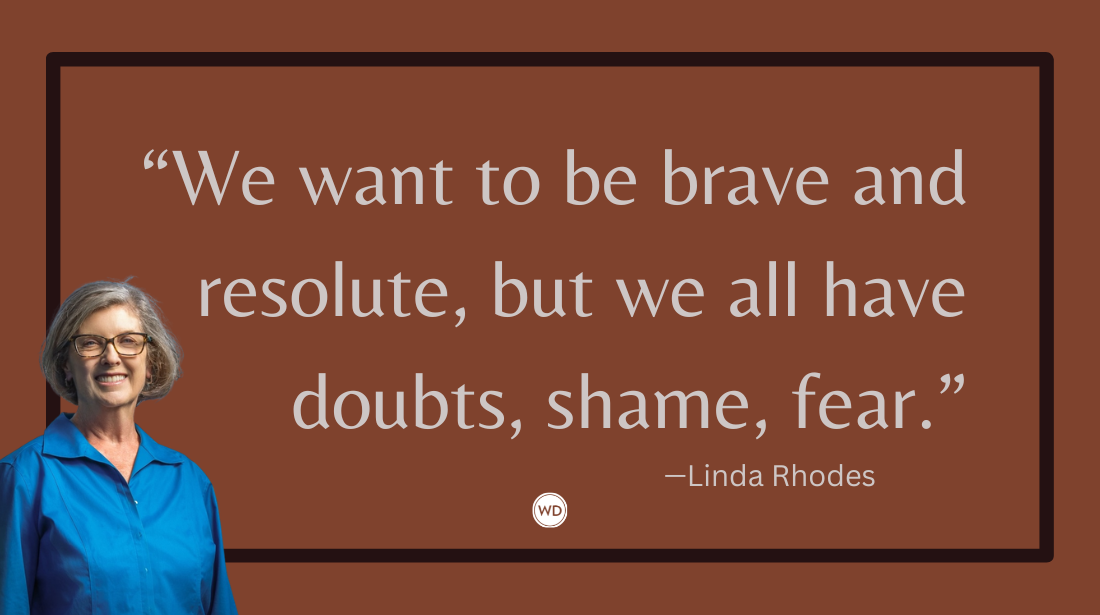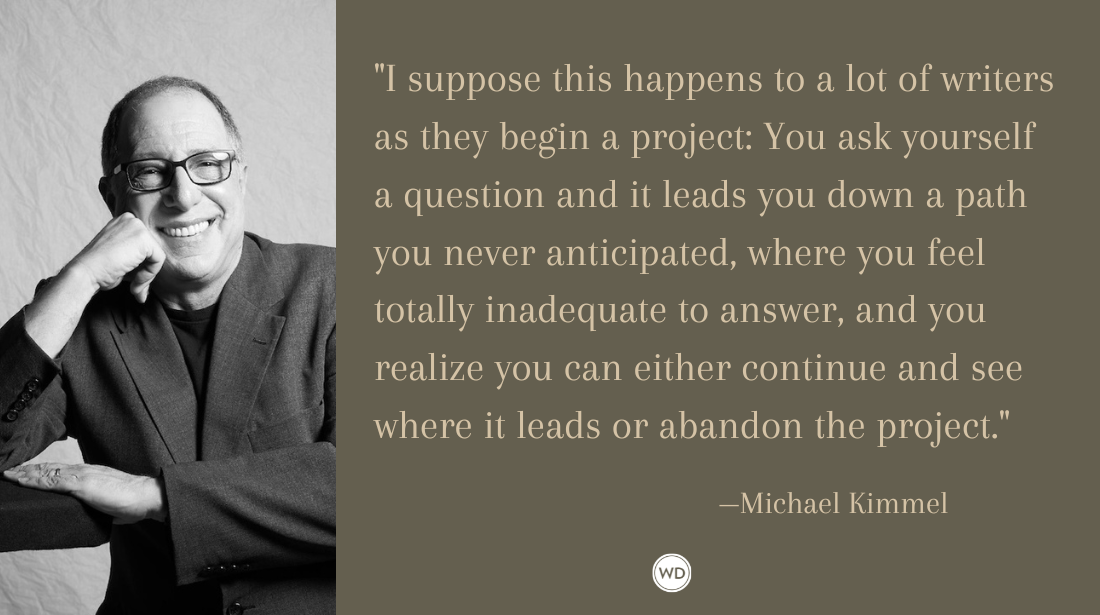Finding Your Nonfiction Writing Niche and Understanding Why This Is So Important
Why specialize? It’s a question many nonfiction authors face. Author Rick Lauber explains how focusing in on one subject can help your writing create a bigger impact—and even widen your audience.
When nervously venturing into the world of freelance writing many years ago, I began by accepting any story assignment … I was pleased to write, see my name in print, and collect tear sheets of my published work. By casting my net wide, I became a generalist and thought that my being able and open to writing about anything would be beneficial and appealing. Thanks to my aging parents, I’ve since changed my mind.
My conclusion came when my parents were diagnosed with respective health conditions (Mom had Parkinson’s disease and Leukemia while Dad had Alzheimer’s disease), I became their co-caregiver. Working with my two sisters, I provided help and support where and when I could. The job wasn’t something I was expecting and I—admittedly—struggled to manage many new responsibilities while watching my parents decline both physically and mentally. Advice I had heard from other caregivers finally began to sink in—I couldn’t continue to effectively take care of my parents if I didn’t take care of myself in the process. Writing proved to be an excellent coping mechanism. I found that by sharing many of my experiences, thoughts, and frustrations on paper, I reduced my stress level, relaxed, and recharged.
Being consumed with caregiving duties, I didn’t realize then that I was well on my way to finding my own writing nonfiction niche (or what I really wanted to write about specifically). Writing about seniors and senior care provided me a chance to, not only, help myself but also to help others. Many of my completed stories were published in a local senior’s newspaper and, in due course, became the platforms for my two published guidebooks for prospective, new, and current caregivers.
Why specialize? Whether it’s senior care, computers, professional sports, freelance writing, Goliath Beetles, or whatever, by writing about a certain topic, writers become more recognized as specialists, authorities, or subject matter experts in that topic. Writing specialists are sought out for more lucrative assignments, media interviews, public speaking opportunities, and so on—all of which can greatly enhance a writer’s exposure and professional reputation.
Often, these requests come unexpectedly and can be flattering to a writer. Speaking personally, since solely focusing on caregiving, I have been approached to write for many publications, present webinars, act as a lead writer with the development of a caregiving toolkit, and guest on radio podcasts and television news broadcasts.
Writers don’t need aging parents to find their own nonfiction niches. Here are several other proven methods.
14 Tips for Finding Your Writing Nonfiction Niche
Write About What You Know
This is common advice for writers at any stage of their careers and it makes a great deal of sense. By writing about a familiar topic, a writer can show more passion with completing a story—passion that can easily extend into personal promotional efforts where readers can better recognize a writer’s devotion. Choosing a topic of personal interest will also make writing about this topic more attractive and less time-consuming (writers can draw from their own knowledge rather than research or seek out experts to interview). Writers need to consider the depth of a subject … are there numerous angles to address? By identifying personal interests or strengths, a writer can develop a personalized niche.
Write About What You Don’t Know
Writers shouldn’t be afraid to look outside their own personal interests. Learning about something new may open new doors and result in regular “how-to” story assignments.
Choose a Relevant Niche
Writing about something is one thing, but writers will want their work read. It became obvious to me that my own senior care niche was both timely and topical. Other subjects including personal health and wellness, financial advice, food and drink, entertainment, and/or travel have widespread—and continual—popularity with readers and could be considered.
Read the News
By reading the daily newspaper or listening to the nightly newscast, writers can better learn about current events and, perhaps, identify a niche.
Browse the Bestsellers
Much like keeping current with the news, writers can also review the bestselling book titles on Amazon.com. This will better educate the writer as to what readers are reading currently and can help with developing a popular writing niche.
Join a Facebook Group
When logging into Facebook, a writer could click on “Groups” and then enter a term into the “Search Groups” box. Resulting groups interested in that area or issue will be listed. Writers can join these groups, learn more about possible niches, chat with like-minded individuals, and collect story ideas.
Ask For Opinions
Sometimes we can’t always see what is directly in front of us. A family member, friend, or business colleague may be able to better identify a writer’s interests.
Once a writer has chosen his/her own nonfiction niche, how can he/she use that niche moving forward?
Target Trade Publications
Abundant newspapers, magazines, newsletters, and e-newsletters exist across North America. Writers could research these publications (by picking up a copy of the Writer’s Market, visiting publication websites, and reading specific publications to get a feel for desired content, tone, freelance—in-house writer ratio, etc.) and pitch story ideas to each editor. Editors can easily recognize writing subject matter experts and will assign stories to them. By submitting quality content and developing a relationship of trust with an editor, a niche writer may be given other opportunities. I was approached about becoming a bi-monthly columnist. Writing specialists will be trusted to deliver a well-written and well-researched story by a deadline date, offer fresh ideas, and provide a new “voice.”
Pursue a Style
Writing subject matter experts don’t have to just focus on one, or two, specific topics … they can certainly broaden their scope. Writers could build a strong niche of writing grant applications (for non-profit associations), employee training manuals (for new hires), and /or resumes or cover letters (for job seekers). A friend of mine and fellow writer even niche wrote astrological forecasts for quite some time!
Become a Professional Speaker
Introverted writers may shy away from being in the spotlight, but public speaking can generate more freelance writing clients and/or book sales. Writers nervous about facing an audience can build confidence by joining Toastmasters and presenting to smaller groups (I began by scheduling numerous caregiving talks with local Rotary Clubs who were interested in booking guest speakers).
Blog
Setting up a blog is easy to do. Niche writers can post their own content on their schedule and develop an audience.
Tweet
Twitter can become a powerful tool for niche writers. With my own account, I discuss seniors and senior-related issues, offer caregiving advice, and frequently share links to my posted/published stories. By doing so, I have seen my number of “followers” steadily increase. Other social media channels including Facebook and LinkedIn are also worthwhile.
Write Books
Author Stephen King has written 62 novels and sold 350 million books—many of which are horrors. Obviously, King has found his writing niche and used this to become a successful author. Niche writers not ready to tackle a book project independently may partner with others to offer their name and credibility to a published book.
Teach
Others may want to learn about a niche writer’s subject matter expertise. A recognized niche writer could offer in-person or online classes.
The choice to generalize or specialize is, of course, the writer’s decision to make. Finding, building, and maintaining a niche all take time and effort but writers can find focusing in a specific area certainly rewarding.
Rick Lauber is the author of two published guidebooks for caregivers: Caregiver’s Guide for Canadians and The Successful Caregiver’s Guide. In addition, he is a twice-selected story contributor for Chicken Soup for the Soul and an established freelance writer. www.ricklauber.com.









